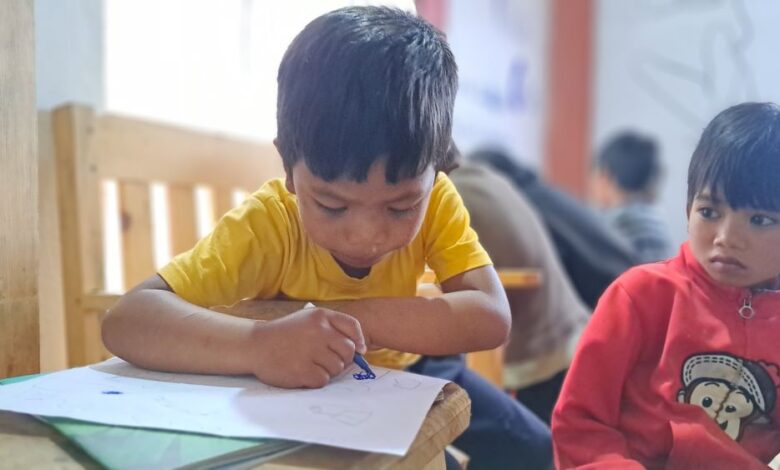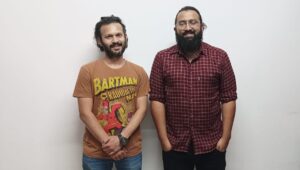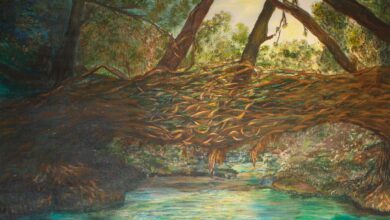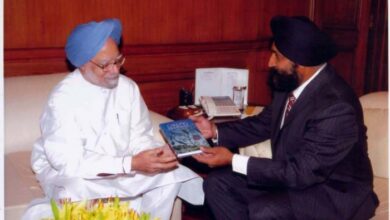Tales from the past to enrich the present
NGO collects indigenous stories & contextualises to suit the learning needs of today’s children

Folklores are a way of understanding a community, its tradition, beliefs and its rich history of oral storytelling. These stories are like fine threads that connect generations but are fragile enough to snap if not safeguarded from the onslaught of time. Hence, a group of young enthusiasts have taken up the task to protect the folktales of Meghalaya and incorporate them in the early childhood learning process.
The Forgotten Folklore Project by Sauramandala, an NGO that has been working in Meghalaya since 2019, has been started to preserve the indigenous tales and contextualise them to make them relevant in today’s time. The project started last September after the NGO members observed that anganwadis in the state lack reading materials that are rooted to the indigenous culture and tradition.
“There was no content based on local stories or folktales. Even the toys are alien to the place. This made us realise the importance of introducing children to their own culture and tradition,” said Nagakarthik MP, co-founder of Sauramandala.
Initially, the NGO collaborated with Pratham Books to bring out books in English, Khasi and Garo. The intention was to publish 45 bilingual books, 15 from each region (Khasi, Garo and Jaintia). English will the common language in all books.

“The project is not about reproducing the folktales but to borrow elements from these indigenous stories and develop fiction around them. The images in these books will help even illiterate parents in villages understand the context. We are also planning to develop toys based on the folk characters. These characters can also be used for social messaging,” said Karthik.
The state government, through the Meghalaya Basin Development Authority approached the NGO last July for implementing this project, headed by cartoonist Lanuangla Tsudir, at a pilot level.
Lanuangla explained why the project is called Forgotten Folklores and not ‘folktales’. “Folktales would mean a collection of stories told orally generation after generation. But folklore is a bigger umbrella and encompasses the culture, tradition, practices and history of a community,” said Lanuangla who, besides overseeing the project, is also authoring a few books and doing illustrations.
The Sauramandala team working on the project follows a four-step process to gather stories. It first selects a subject or community and conducts preliminary investigations before scheduling a site visit. Next, a team of three researchers contacts members of the community, said Lanuangla.
The team interviews the identified storytellers from the communities to collect cultural narratives and ensures that the essence of the traditions, customs, ceremonies and lifestyle is captured in its true sense.
Then it transcribes and condenses the information while preserving the authenticity and essential elements of the stories. Authors and illustrators use the condensed information to create culturally accurate stories for children.
“We have come across some really interesting stories. For instance, when we visited a village called Emangre in Garo Hills, we found a prolific storyteller. He told us about a practice among the followers of Songsarek, the indigenous religion of the Garos, where people would preserve the finger and toenails of the dead. Initially, it sounded gory but when we returned with the information and went through it, we found it really interesting. I insisted that this should be part of a story and asked one of the authors to create something. After a lot of discussions, we decided that we will tell a simple story where a child first encounters grief following the death of his grandmother. As he is trying to cope with this, his mother shows him the bangles of the grandmother along with her nails,” Lanuangla said as she enumerated the process roping in concepts such as grief, in this case, in children’s literature and contextualise information.
As a pilot, the 45 books, to be published by Sauramandala Foundation, will be distributed among 60 anganwadis. The NGO will conduct a study on the impact of the books on children and collect feedback before taking the project forward.
“The creative freedom in this project is immense and we are taking every opportunity to make this a success,” added Karthik.
Sauramandala will also bring out read-along audiobooks for children to understand the stories and learn the language. Also, the books will be available in digital version on Pratham’s Storyweaver digital library platform.
Sauramandala in Meghalaya
The Forgotten Folklore is among the several projects that the NGO, which has its origin in Bengaluru, is running in Meghalaya. The main project is the one for rural entrepreneurs in collaboration with the state government.
The NGO started work in the state in 2019 and focused on village electrification in collaboration with SELCO Foundation, which works on innovative energy solutions. It started its journey from Garo Hills, East and West, and collaborated closely with the district administration to electrify health sub-centres. “The work got traction within the state system and then we have been asked to expand with 25% of the total funding. During the second wave, 100 sub-centres across the state were given electricity. Now, we are working on 400 sub-centres,” said Karthik.
While doing so, the team encountered a few individuals who were running startups at a local level. However, these small-time entrepreneurs were struggling with no government scheme to help. “We realised that though there were various government schemes, these were not tuned to the reality… Sauramandala helped the government understand the needs of these people and in the process design the schemes as per the requirements,” he added.
The chief minister’s PRIME programme was aligned with this to form PRIME-Sauramandala Rural Entrepreneurship Fellowship.
Besides implementing various schemes, Sauramandala is also helping in enriching the state government’s data bank that, said Karthik, will help in designing better schemes and the government’s decision-making.




